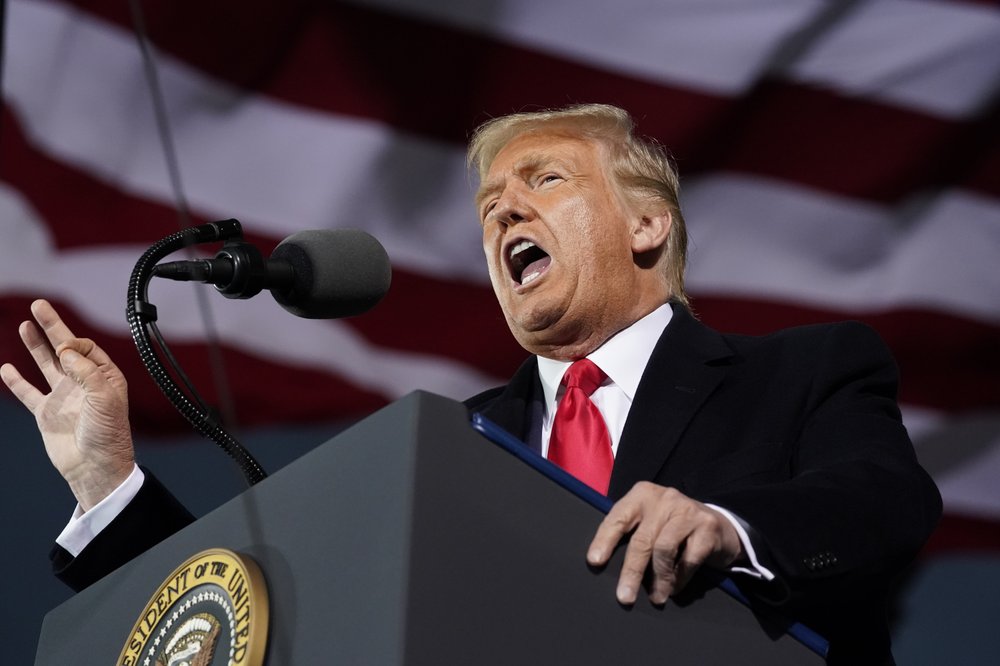Weeks, even months prior to Nov. 3, the smart money was on U.S. Democrats running the federal election table.

Polling and media opining had, for the most part, deemed as fantasy any notion that Donald Trump and the Republican Party would emerge from the vote tabulation as anything more than political roadkill.
The roadkill, though, displayed remarkable resilience. I could have told you so.
Vilification of the 45th president, soaring among the ranks of his detractors, served only to engage supportive passions from those committed to extending Trump’s Oval Office tenure.
If a program guest were to predict a Trump electoral defeat, the pushback was instant and determined. If ever the president’s actions were to be additionally described in pointedly unflattering terms, I would have been hard-pressed to read critical emails on air without a content advisory.

Trump opponents, though, might be inclined to dismiss writers of such emails as marginally educated crackpot extremists — but not so fast.

Get daily National news
It has become tiresome to hear that the acquisition of a university arts degree somehow suggests the diploma recipient has an intelligence greater than those who joined the workforce with only a high school education or after having dropped out of college. Bill Gates (Microsoft), Steve Jobs (Apple), Michael Dell (Dell Technologies) and Mark Zuckerberg (Facebook) all dropped out of college.
Besides, I have recognized the names of some of these critics as longtime listeners who over the years have offered considered points of view and frequently concluded with, “What are your thoughts, Roy?”
At the time of this election campaign, though, my thoughts were at least some of the time clearly beyond suspect, as was my guest selection. Still, one angry email read, “So they finally got to you. You have clearly crossed over. You no longer have any credibility. I will never listen to your program again.” There would be variations on that theme. Repeatedly.
The campaign itself never really became about supporting either Joe Biden‘s or Donald Trump’s distinct and different visions for the future of America.
It wasn’t even about the two men.
Biden, operating from his basement in deference to the threat of the coronavirus pandemic (we were assured), was mostly the virtually invisible man. The candidate who so badly tanked in the first Democratic Party primaries in Iowa and New Hampshire never really seemed to pick up his game and perhaps this will ultimately be assessed as a wise strategy.
As for Trump? He was Donald Trump: ego supported by its twin, narcissism; brash and loudly loving the crowds. The MAGA hat was the exclamation point for the Trump approach to campaigning.
The U.S. election became not so much about Democrats vs. Republicans. It came to be about Trump-haters vs. Trump supporters. It was about emotion. It still is.
How the election will eventually conclude in America is anyone’s guess. National violence? A real concern. Some 40 per cent of Republican, 28 per cent of Democrat and 38 per cent of unaffiliated voters shared in a June Rasmussen Reports nationwide poll that they expect civil war to break out within the next five years.
Against the backdrop of raw national emotion, the impact of Trump on American society will extend well beyond his time in the Oval Office.
Roy Green is the host of the Roy Green Show on the Global News Radio network.
Listen to the latest from the Roy Green Show
Subscribe to the Roy Green Show Podcast now at Apple Podcast or Google Play








Comments
Want to discuss? Please read our Commenting Policy first.